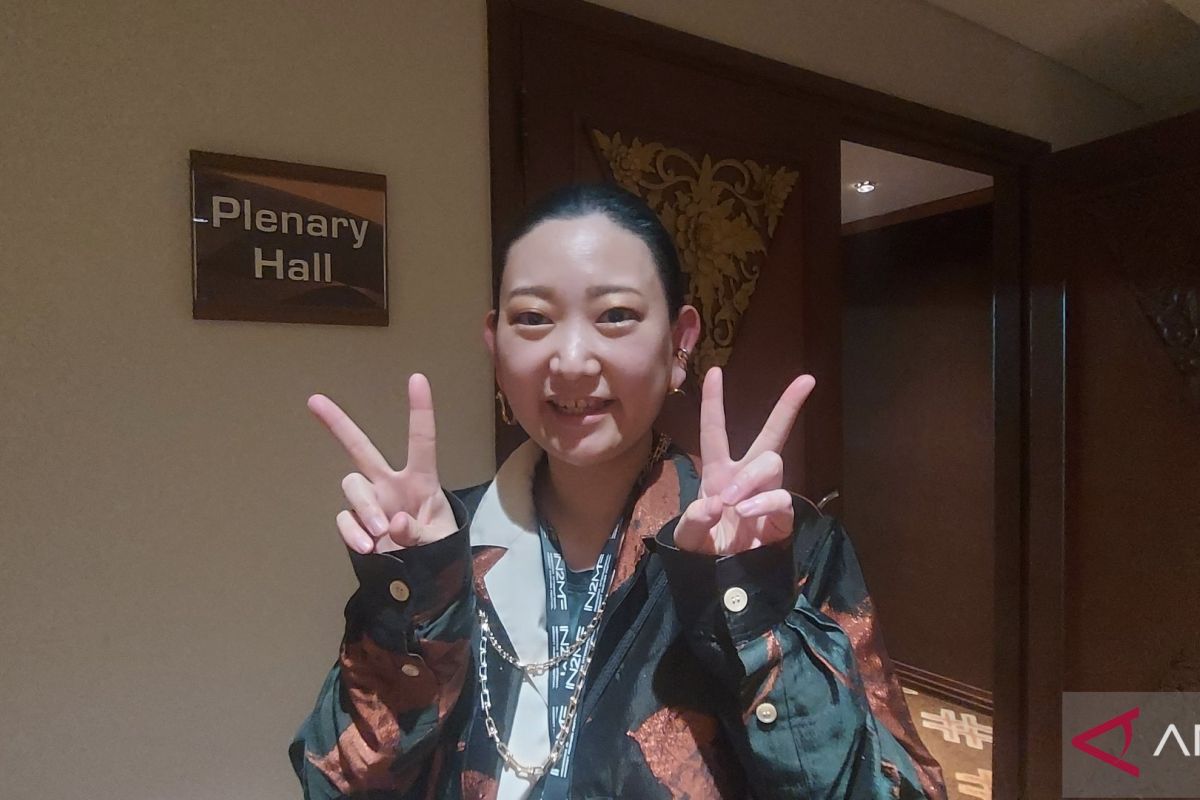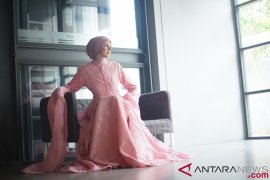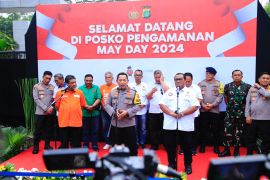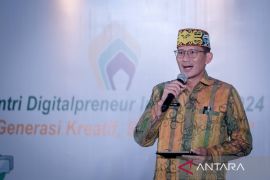The concept of the hijab in Indonesia attracted me to make a version using collagen material from fish scales, which are often thrown away carelessly and become waste.Jakarta (ANTARA) - The trend of wearing head coverings or hijab (veils worn by Muslim women) among santri prompted Japanese designer Erika Masuda to design her own version, which, she claims, is environmentally friendly.
Santri is another name used to refer to students of Islamic boarding schools.
Masuda told the press in Jakarta on Saturday that she made wastra fiber, or traditional cloth, which is full of Indonesian cultural meaning, from recycled fish scale waste.
"Indonesian culture has the hijab, whereas in Japan there is not. The concept of the hijab in Indonesia attracted me to make a version using collagen material from fish scales, which are often thrown away carelessly and become waste," Masuda noted.
She said she hopes that using fish scales as a basic material for making hijabs can one day become a solution to climate change and ensure environmental sustainability that can be replicated in other places.
Masuda also invited Muslim fashion lovers in Indonesia to work together to reduce textile waste, which threatens the environment, by not being just followers of certain fashion trends.
She is collaborating with a designer from Indonesia, Bubah Alfian, to design 12 Muslim fashion looks that will be showcased in Jakarta. This is an effort to bring the recycled fashion trend closer to Muslim women in the Indonesian capital.
According to Alfian, there is a difference between collagen fibers from fish scales and regular woven fabric, namely that they are softer on the skin.
"I think this is the softest fabric I have ever held; it is cool, nice, and very comfortable," Bubah said.
The collaboration between the two also gave birth to a combination of carnival-themed Muslim clothing in the style of Bubah Alfian with shibori art from Kyoto (Japan), Masuda's version of Kinbaku, which is being offered at prices starting from Rp450 thousand (around US$28).
Shibori, the Japanese technique of dyeing cloth, involves dipping cloth that has been folded or tied into dye to produce unique patterns.
Related news: Indonesia firm on becoming Muslim fashion hub
Related news: World Hijab Day encourages women to voice their choice
Translator: Abdu F, Azis Kurmala
Editor: Tia Mutiasari
Copyright © ANTARA 2023











